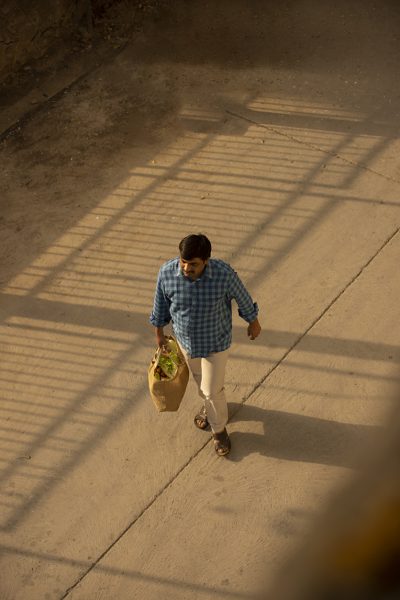
We were born when Nehru was PM, and thank god for that
Healthy societies understand that acute economic disparities need to be tackled, and one way of doing it is to enable the poor to have some cushion in life; subsidies help to deflect life’s fiscal harshness

Thank god, we were born when Jawaharlal Nehru was the Prime Minister. Otherwise, my (now late) parents might have been publicly taunted for relying on highly subsidised ration and more to survive.
My father was a middle-level Central government employee in Delhi, and his salary was nothing to talk about. Not only did he have to feed four people but he also sent money to his widowed mother in Kerala. We were lucky because my mother was among the rare women in that era who were employed (Karnataka Emporium). Her salary was a pittance although it gave us some extra cushion.
Our most luxurious possessions were a radio and a Lambretta scooter. Our food came from the ration supplied by the government, which we eagerly collected at the start of every month.
Opinion: Time for parties to replace ‘revdi culture’ with sturdy economic policies
Since we never took our quota of wheat and a few other items, the shopkeeper who manned the ration outlet provided us extra rice, which was hugely welcome. Fruits were a rarity. Barring perhaps once or twice a year, we never ate out.
For years, we had no idea what pocket money was. We looked forward to religious events when there was free food, and in plenty, in temples and at events hosted in our school on Sundays and holidays.
The house we lived in was allotted by the government, which meant that electricity and water were free. Doctors and medicines came from the efficient Central Government Health Scheme (CGHS). In a medical emergency, we rushed to the landmark Safdarjung Hospital, where, too, services were free.
My sister and I studied in a very middle class Tamil school — virtually for free. The monthly fee was just 28 paise. For most Tamil families in south Delhi, the DTEA (Delhi Tamil Education Association) schools were a boon since each house had two to four school-going children. After all, one had to pay for uniforms besides school books and notebooks.
Opinion: Modi’s critique of ‘Opposition freebies’ unfair, he needs to turn gaze inward
The scene was no different in Netaji Nagar (where we lived) or in any of the other government-built neighbourhoods in south Delhi. Almost everyone relied on ration for staple food. Most children went to government schools where education was for free.
Concerted attacks on small things
When I see the concerted attacks on even the small mercies Arvind Kejriwal extends to citizens in Delhi, I wonder how we would have coped with the tough 1960-70s if we had been confronted with a similar mindset which looks down upon the less privileged mortals.
What if some bright economists had declared in that era that there would be no subsidy, nothing would be available for free and the market alone would determine how the economy would be?
Most of us would have perished in such a scenario.
It is only the cash rich who cannot appreciate what a huge difference a few thousand rupees saved each month on account of subsidies makes to the family budget in these hard-pressed times. I have no shame in admitting that the ₹2,200-2,500 I save on electricity and another ₹400 or so I don’t pay for water as a resident of Delhi amounts to a monthly income of nearly ₹3,000.
Opinion: A flawed judgment on EWS quota
Medicines given for free at Mohalla Clinics are another godsend. Ditto for the medical services in Delhi government hospitals. We felt no different when we made use of CGHS doctors and medicines and Safdarjung Hospital earlier.
Even many middle class families do not realise how happy the bulk of the working class is with DTC (Delhi Transport Corporation) services made free for women. Our domestic help shared that she now spends more on fruits and vegetables thanks to the savings on transport. I have heard similar stories from others hailing from the less privileged class.
The ending of railway concession
One reason why the Delhi government’s free pilgrimage scheme — now copied by the BJP administration in Madhya Pradesh — is a hit is that it is linked to what the Central government has (un)done. The removal of the 50 per cent subsidy on railway fares for those above 60 is nothing short of cruelty. In an age where most people are without a pension or a respectable income, this subsidy gave the elderly a comfort zone when they travelled occasionally to a religious hub or a family function. With the concession axed, it is goodbye to travel to most senior citizens.
Healthy societies understand that acute economic disparities – increasingly visible in all countries – need to be tackled, and one way of doing it is to enable the most depressed and the relatively poor to have some cushion in life. Subsidies help to deflect life’s fiscal harshness. To assume that the middle class doesn’t need or deserve subsidies or to openly mock them is an unfortunate sign that those at the helm of affairs have lost their sense of humility and fellow feeling for the less fortunate.
I am happy no one is denouncing the gurudwaras or major religious shrines for the free food they provide day after day to millions around the country. Our sages and saints, who sanctified annadaan, were not heartless.
(The writer, now a freelancer, has been a journalist in New Delhi for more than 40 years.)
(The Federal seeks to present views and opinions from all sides of the spectrum. The information, ideas or opinions in the articles are of the author and do not necessarily reflect the views of The Federal)


